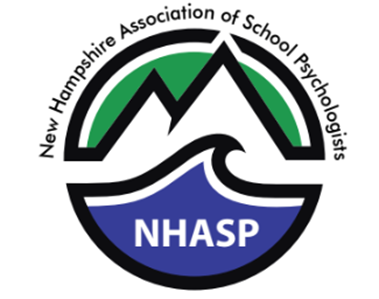Guidance and Position Papers
The New Hampshire Association of School Psychologists has developed a range of documents to provide guidance to the field in our great state. These fall into two broad groups, guidance documents and position papers. Guidance documents generally include suggestions for practice and are developed in response to questions presented to our organization. Position papers follow a more rigorous development and approval process and represent official positions of our organization.
We welcome feedback on these documents and encourage school psychologists and others to read and share them. NHASP members interested in being part of the development of future documents should contact the current NHASP president.
Position Papers
The following position papers have been adopted by the Executive Board of the New Hampshire Association of School Psychologists.
Adopted November 18, 2020.
NHASP and the NH Association of Special Education Administrators (NHASEA) are proud to announce the joint adoption of a position statement on “The Appropriateness of Educational Teams Using Conditions and/or Diagnoses Identified by School Psychologists.” Adopted on November 18th (NHASP) and November 20th (NHASEA) 2020, this statement clarifies that school psychologists are able to identify conditions and diagnoses that IEP and 504 teams can then use for eligibility decisions and program planning.
Both NHASP and NHASEA are excited to announce this position statement. Association leaders will continue to partner to promote this statement and advocate for practice changes in our NH schools where needed. In brief, the statement outlines that school teams should not require families to provide a diagnosis from a community provider, such as a physician or a private psychologist before determining eligibility. Additionally, while multiple eligibility areas require the school obtain a health assessment as part of the comprehensive evaluation process, the health evaluation does not need to provide this diagnosis. Instead, the school psychologist can be the professional who identifies the condition or diagnosis for the team to consider, along with the results of evaluations completed by other professionals as part of the team process.
We encourage everyone to read the position statement and consider the implications for practices in their school. Watch for additional resources on this topic coming in the near future. Thank you to all who worked on this position statement, including the NHASP writing committee of Nate Jones (chair), Ryan Long, Dave Smith, and Jonas Taub; NHASEA executive director Jane Bergeron; and Michael Opuda and attorney Gerald Zelin from Drummond Woodsum.
(Note, this joint paper replaces a similar statement adopted by NHASP on May 20, 2020)
Guidance Documents
The following documents have been developed by NHASP leadership and are presented to the field for consideration.
Quick Tips: Expanding Your Role
Originally published in the NHASP Note, this practice guidance provides some quick tips for school psychologist on advocating for an expanded role within your school district.
Quick Tips on Advocating for an Expanded Role
NHASP Information for Educators During COVID-19
A group of NHASP leaders, led by Nate Jones, has developed a guidance document on school psychology and the return to learning. Recommendations for screening and individual evaluations are given, as well as considerations for how to maintain a broad scope of practice.
School Psychology and the Return to Learning-Final.pdf
The NHASP Study Group on Executive Skills, led by Peg Dawson, has developed two documents. First is a set of "Tips for Caregivers and Parents on Schooling at Home: What Role Do Executive Skills Play." This wonderful set of tips can be used by everyone working with our students during this time of remote learning. The second is a Message for Teachers on Stress and Executive Skills.
Tips on Schooling at Home EF Dawson[3435].pdf
Stress and executive skills-by P Dawson.pdf
Additionally, the NHASP Ethics Committee has provided a guide on the "Delivery of School Psychological Services in New Hampshire During COVID-19 School Closures." This guide outlines many of the important considerations for school psychologists during this time.
Position and Policy Statements
The NHASP executive board has adopted a number of position and policy statements over time. These statements help guide our association and provide guidance on our association. Please contact a member of the NHASP executive board for additional information on any of these statements.
Policy Statements
The NHASP research policy outlines who is allowed and how to access NHASP membership lists for research purposes. This policy statement received final approval in February, 2015.
This Practice Model was initially created by the National Association of School Psychologists (NASP). It describes the breadth and depth of professional practice for school psychologists. The executive board of NHASP adopted this Practice Model as policy for our association in November, 2014. The NASP Practice Model was revised and approved in May of 2020.
These ethical principles define the work of a school psychologist and the requirement to protect the students we serve. All NHASP members agrees to abide by these ethical standards. These are the standards that guide the work of the NHASP Ethics Committee. The executive board of NHASP most recently adopted these principles as policy for our association in November, 2014.
The standards for graduate preparation of school psychologists outline the important components of training as a school psychologists. NHASP supports the intensive and sophisticated training of new practitioners in our field as described by these standards. The executive board of NHASP adopted these standards as policy for our association in November, 2014.
The standards for credentialing of school psychologists define the important components of the credentialing of school psychologist. NHASP supports these standards as necessary components of the credentialing of school psychologists. The executive board of NHASP adopted these standards as policy for our association in November, 2014.

